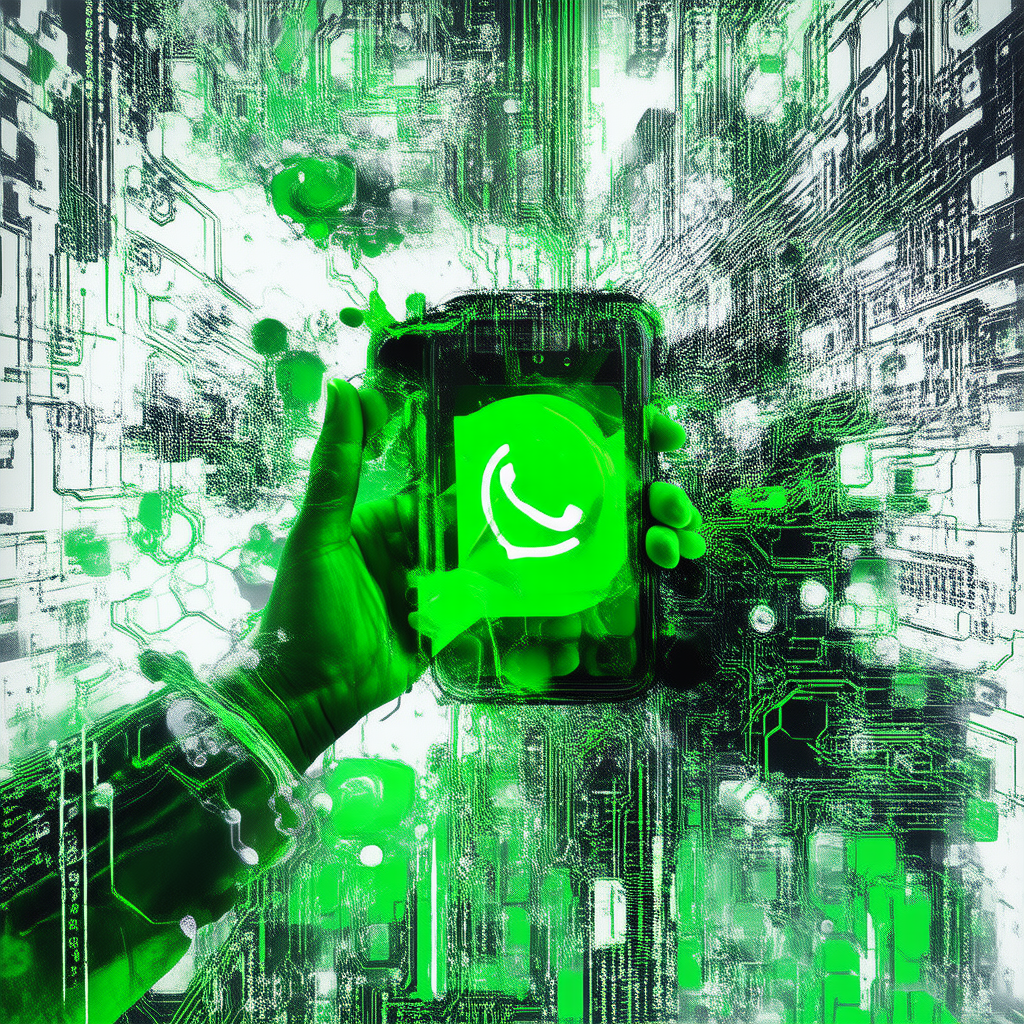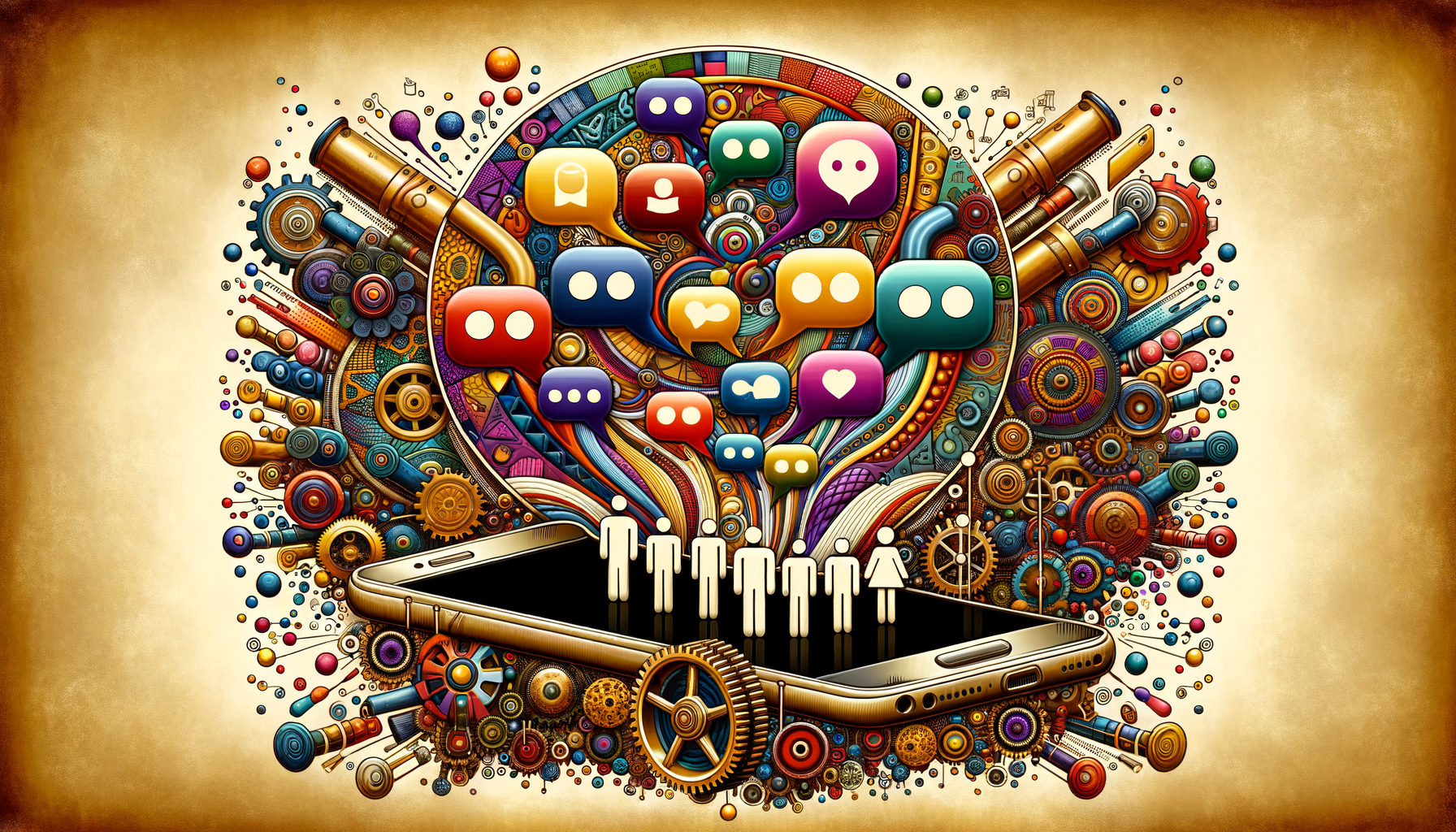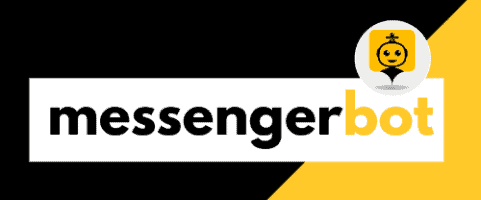In today’s fast-paced digital landscape, businesses are constantly seeking innovative ways to enhance customer engagement and streamline communication processes. Enter WhatsApp chatbot integration, a game-changing solution that’s revolutionizing how companies interact with their audience. By seamlessly combining the world’s most popular messaging platform with cutting-edge AI technology, WhatsApp chatbots offer unprecedented opportunities for automating customer interactions, providing instant support, and delivering personalized experiences at scale. This article delves into the intricacies of WhatsApp chatbot integration, exploring its benefits, implementation strategies, and potential challenges. Whether you’re a small business owner or a corporate decision-maker, understanding the power of WhatsApp bots and their integration possibilities can be the key to unlocking new levels of customer satisfaction and operational efficiency in your organization.
Revolutionizing Customer Engagement with WhatsApp Chatbots
At Messenger Bot, we’re constantly exploring innovative ways to enhance customer engagement. One of the most exciting developments in recent years has been the integration of chatbots with WhatsApp, the world’s most popular messaging platform. This combination is transforming how businesses interact with their customers, offering unprecedented levels of efficiency and personalization.
Can I integrate a chatbot with WhatsApp?
Absolutely! Integrating a chatbot with WhatsApp is not only possible but increasingly becoming a necessity for businesses looking to stay competitive in the digital landscape. There are two primary methods to achieve this integration:
1. WhatsApp Business App: This option is perfect for small to medium-sized businesses. It offers basic automation features and quick replies, allowing you to set up simple chatbot functionalities.
2. WhatsApp Business API: Ideal for larger enterprises, this method provides advanced features and scalability, enabling more sophisticated chatbot integrations.
To create a WhatsApp chatbot, you’ll need to follow these steps:
1. Choose a reliable chatbot platform (such as Twilio, MobileMonkey, or ManyChat)
2. Sign up for the WhatsApp Business API
3. Design your chatbot’s conversation flow
4. Set up automated responses and decision trees
5. Implement natural language processing (NLP) for better understanding of user queries
6. Integrate with your CRM or other business systems
7. Thoroughly test for user experience and functionality
8. Deploy and continuously monitor performance
It’s crucial to comply with WhatsApp’s policies and obtain user consent for messaging. By following these steps, you can create a powerful tool for customer engagement and support.
Benefits of WhatsApp chatbot integration for businesses
Integrating a chatbot with WhatsApp offers numerous advantages for businesses of all sizes. Here are some key benefits:
1. 24/7 Customer Support: Chatbots can handle customer queries around the clock, ensuring that your business is always accessible.
2. Improved Response Times: According to WhatsApp, businesses using their API have seen a 50% reduction in cost per conversation compared to phone support. This efficiency translates to faster response times and improved customer satisfaction.
3. Lead Generation: Chatbots can engage potential customers, qualify leads, and even schedule appointments, significantly boosting your sales funnel.
4. Cost-Effective: By automating routine tasks, chatbots can handle up to 80% of routine customer queries, freeing up human agents for more complex issues (Juniper Research, 2021).
5. Personalized Interactions: With access to customer data, chatbots can provide tailored recommendations and personalized experiences.
6. Scalability: As your business grows, chatbots can handle an increasing volume of conversations without a proportional increase in costs.
7. Multi-lingual Support: Advanced chatbots can communicate in multiple languages, breaking language barriers and expanding your global reach.
8. Data Collection and Analysis: Chatbots can gather valuable insights from customer interactions, helping you refine your products and services.
By leveraging these benefits, businesses can significantly enhance their customer engagement strategies. At Messenger Bot, we’re committed to helping you harness the full potential of WhatsApp chatbot integration, ensuring you stay ahead in today’s competitive digital landscape.

Automating Customer Interactions
At Messenger Bot, we understand the power of automation in revolutionizing customer interactions. By integrating chatbots with WhatsApp, businesses can significantly enhance their customer service capabilities, streamline operations, and provide round-the-clock support. Let’s dive into how you can automate your WhatsApp chatbot and leverage the WhatsApp chatbot API to streamline the integration process.
How do I automate WhatsApp chatbot?
To automate a WhatsApp chatbot effectively, follow these comprehensive steps:
1. Choose a chatbot platform:
– Select a reliable platform like Twilio, MobileMonkey, or Messenger Bot
– Ensure the platform supports WhatsApp Business API integration
2. Set up WhatsApp Business API:
– Apply for WhatsApp Business API through Facebook Business Manager
– Complete the verification process and obtain necessary credentials
3. Design your chatbot:
– Map out conversation flows and user interactions
– Create a decision tree for various user inputs and responses
4. Implement natural language processing (NLP):
– Integrate NLP libraries like Dialogflow or Wit.ai
– Train your bot to understand user intent and context
5. Develop automated responses:
– Create pre-written messages for common queries
– Implement dynamic responses based on user input
6. Set up webhooks:
– Configure webhooks to receive real-time notifications
– Enable seamless integration with your backend systems
7. Implement rich media support:
– Enable sharing of images, videos, and documents
– Create interactive buttons and quick reply options
8. Test thoroughly:
– Conduct extensive testing across various scenarios
– Refine responses and fix any bugs or issues
9. Deploy your chatbot:
– Launch the chatbot on your WhatsApp Business account
– Monitor performance and user interactions
10. Analyze and optimize:
– Use analytics tools to track user engagement
– Continuously improve based on user feedback and data insights
11. Implement security measures:
– Encrypt sensitive data
– Implement user authentication for secure transactions
12. Integrate with CRM and other systems:
– Connect your chatbot with CRM tools for better customer management
– Enable data synchronization with other business systems
By following these steps and leveraging advanced features, you can create a sophisticated, automated WhatsApp chatbot that enhances customer engagement and streamlines business processes. At Messenger Bot, we offer tools and support to help you implement these steps effectively, ensuring your chatbot meets the highest standards of functionality and user experience.
WhatsApp chatbot API: Streamlining the integration process
The WhatsApp chatbot API is a powerful tool that streamlines the integration process, allowing businesses to create more sophisticated and responsive chatbots. Here’s how the API can enhance your WhatsApp chatbot integration:
1. Seamless Communication: The WhatsApp API enables real-time, two-way communication between your business systems and WhatsApp users. This allows for instant responses and updates, enhancing the user experience.
2. Rich Media Support: With the API, your chatbot can send and receive various types of media, including images, videos, documents, and location information. This versatility allows for more engaging and informative interactions.
3. Template Messages: The API supports template messages, which are pre-approved message formats. These are particularly useful for sending notifications, alerts, and other structured communications efficiently.
4. Webhooks for Real-time Updates: The API uses webhooks to notify your systems of incoming messages and status updates in real-time. This feature ensures that your chatbot can respond promptly to user interactions.
5. Business Profile Customization: The API allows you to customize your business profile on WhatsApp, including adding a profile picture, description, and business hours, enhancing your brand presence.
6. Analytics and Insights: Many API providers offer analytics tools that help you track message delivery, read receipts, and user engagement metrics. This data is crucial for optimizing your chatbot’s performance.
7. Multi-agent Support: For businesses with large customer service teams, the API supports multiple agents handling conversations simultaneously, ensuring efficient management of high message volumes.
8. Integration with Existing Systems: The API can be integrated with your existing CRM, e-commerce platforms, or other business systems, allowing for a seamless flow of information across your digital ecosystem.
9. Scalability: As your business grows, the WhatsApp API can handle increasing volumes of messages without compromising on performance or user experience.
10. Compliance and Security: The API adheres to WhatsApp’s business policies and security standards, ensuring that your communications are compliant and secure.
At Messenger Bot, we specialize in helping businesses leverage the full potential of the WhatsApp chatbot API. Our platform offers seamless integration capabilities, allowing you to create powerful, AI-driven chatbots that can handle complex interactions and provide personalized customer experiences.
By utilizing the WhatsApp chatbot API, businesses can create more dynamic, responsive, and efficient chatbots. This not only improves customer satisfaction but also helps in reducing operational costs and increasing overall efficiency. As the WhatsApp Business API continues to evolve, it opens up new possibilities for businesses to engage with their customers in innovative ways, setting the stage for the future of customer communication.
Cost Considerations and API Access
At Messenger Bot, we understand that businesses of all sizes are looking to leverage WhatsApp chatbots for enhanced customer engagement. However, it’s crucial to consider the costs and access options associated with implementing these powerful tools. Let’s dive into the details of WhatsApp bot API pricing and features to help you make an informed decision.
Is WhatsApp bot API free?
The WhatsApp Business API is not free, but it offers a tiered pricing structure based on usage. Here’s a breakdown of the costs and considerations for 2024:
1. Initial Setup: There may be setup costs associated with getting started on the WhatsApp Business API. These can vary depending on your chosen solution provider.
2. Conversation-Based Pricing: WhatsApp charges per conversation, with rates varying by country and conversation type (user-initiated or business-initiated).
3. Tiered Structure: As your message volume increases, you may qualify for lower per-conversation rates, making it more cost-effective for high-volume users.
4. Free Alternatives: While the official API isn’t free, there are some free or low-cost options for basic chatbot functionality:
– Twilio API for WhatsApp: Offers a free tier with limited messages, suitable for small-scale projects or testing.
– WA-Automate-Nodejs: An open-source library for creating WhatsApp bots, ideal for developers comfortable with coding.
– Engati: Provides a 7-day free trial for bot creation and testing, allowing you to explore their platform before committing.
5. Paid Options: For more advanced features and scalability, paid options are available:
– Cloud API: A scalable solution ideal for larger businesses with high message volumes.
– On-Premises API: Suited for companies requiring local data storage and enhanced control over their WhatsApp integration.
When choosing a WhatsApp bot solution, consider factors such as your expected message volume, required features, and integration needs. Free options can be great for small-scale or experimental projects, while paid APIs are necessary for enterprise-level applications that require robust functionality and support.
At Messenger Bot, we offer flexible solutions that can adapt to your specific needs and budget. Our platform integrates seamlessly with WhatsApp, allowing you to create powerful chatbots without the complexity of managing API access directly.
WhatsApp Business API: Pricing and features
The WhatsApp Business API offers a range of features designed to enhance business communications. Here’s an overview of the pricing structure and key features:
1. Pricing Structure:
– Per-conversation charges: Rates vary by country and conversation type.
– 24-hour customer service window: Businesses can respond to customer-initiated conversations within 24 hours at no additional cost.
– Template messages: Used for proactive, business-initiated conversations, priced separately.
2. Key Features:
– Verified Business Profiles: Enhance credibility with a green checkmark.
– Rich Media Support: Send and receive images, documents, and other media types.
– Automated Messaging: Set up auto-replies and chatbots for efficient customer service.
– Analytics: Access detailed metrics on message delivery and customer engagement.
– Multi-agent Support: Allow multiple team members to manage conversations simultaneously.
– CRM Integration: Connect with your existing customer relationship management systems.
3. Advanced Capabilities:
– End-to-end Encryption: Ensures secure communication between businesses and customers.
– API Access: Allows for deep integration with existing business systems and workflows.
– Scalability: Handles high message volumes, suitable for businesses of all sizes.
4. Compliance and Security:
– GDPR Compliance: Adheres to strict data protection regulations.
– Message Templates: Pre-approved messages ensure compliance with WhatsApp’s policies.
5. Additional Considerations:
– Quality Rating: WhatsApp monitors message quality and response times, which can affect pricing and access.
– Business Verification: Required for all businesses using the API, ensuring authenticity.
While the WhatsApp Business API offers powerful features, it’s important to note that implementing and managing it can be complex. That’s where solutions like Messenger Bot come in. We simplify the process of creating and managing WhatsApp chatbots, allowing you to leverage these powerful features without the technical overhead.
For businesses looking to explore AI-powered chatbot solutions beyond WhatsApp, Brain Pod AI offers a comprehensive suite of AI tools, including chatbots that can be integrated across multiple platforms.
By carefully considering your needs and budget, you can choose the right WhatsApp Business API solution that aligns with your business goals. Whether you opt for a direct API implementation or a managed solution like Messenger Bot, WhatsApp chatbots can significantly enhance your customer engagement and streamline your communication processes.
Artificial Intelligence in WhatsApp Chatbots
At Messenger Bot, we’re excited about the latest developments in AI-powered chatbots for WhatsApp. The integration of artificial intelligence has revolutionized how businesses interact with customers, offering more sophisticated and personalized experiences. Let’s explore the current state of AI in WhatsApp chatbots and how it’s enhancing customer engagement.
Does WhatsApp have an AI chatbot?
Yes, WhatsApp has integrated AI chatbot capabilities through Meta AI. This feature, introduced in 2023, allows users to engage with an AI assistant directly within the WhatsApp platform. Meta AI on WhatsApp offers various functionalities:
1. Information retrieval: Users can ask questions on a wide range of topics.
2. Task assistance: The AI can help with planning, scheduling, and organization.
3. Creative support: It assists with writing, brainstorming, and idea generation.
4. Real-time updates: Provides current news, weather, and sports information.
5. Language translation: Offers translation services for multilingual communication.
Meta AI utilizes advanced natural language processing and machine learning algorithms to understand and respond to user queries. It’s designed to enhance user experience by providing quick, accurate information and assistance within the familiar WhatsApp interface.
To access Meta AI, users typically start a new chat and select the AI option. The service is opt-in, respecting user privacy and preferences. As with all AI technologies, Meta continues to refine and expand the capabilities of its WhatsApp AI chatbot to improve user interaction and utility.
While Meta AI is a powerful tool, businesses looking for customized AI solutions can leverage platforms like Messenger Bot to create tailored chatbot experiences that align with their brand and specific customer needs.
Enhancing customer experience with AI-powered WhatsApp bots
AI-powered WhatsApp bots are transforming customer experiences across industries. Here’s how businesses can leverage this technology to enhance their customer service:
1. 24/7 Availability: AI chatbots provide round-the-clock support, ensuring customers receive immediate assistance at any time.
2. Personalized Interactions: By analyzing customer data and past interactions, AI bots can offer personalized recommendations and solutions, creating a more engaging experience.
3. Multilingual Support: AI-powered bots can communicate in multiple languages, breaking down language barriers and expanding global reach. This multilingual capability is crucial for businesses operating in diverse markets.
4. Seamless Integration: AI bots can integrate with various business systems, providing customers with real-time information on orders, shipments, and account status.
5. Efficient Query Resolution: AI chatbots can handle a high volume of common queries, freeing up human agents to focus on more complex issues.
6. Proactive Engagement: AI bots can initiate conversations based on user behavior, offering timely promotions or assistance.
7. Continuous Learning: Advanced AI algorithms allow chatbots to learn from each interaction, constantly improving their responses and effectiveness.
8. Data-Driven Insights: AI-powered chatbots can collect and analyze customer data, providing valuable insights for business strategy and product development.
At Messenger Bot, we’ve seen firsthand how AI-enhanced WhatsApp chatbots can significantly improve customer satisfaction and operational efficiency. Our platform allows businesses to create sophisticated AI chatbots that integrate seamlessly with WhatsApp, providing a powerful tool for customer engagement.
For businesses looking to explore more advanced AI solutions, Brain Pod AI offers a comprehensive suite of AI tools that can be integrated across multiple platforms, including WhatsApp.
By implementing AI-powered WhatsApp bots, businesses can provide faster, more accurate, and more personalized customer service. This not only improves customer satisfaction but also helps in building long-term customer relationships and brand loyalty.
As we continue to innovate in the field of AI chatbots, we’re excited about the possibilities for enhancing customer experiences through WhatsApp. Whether you’re a small business or a large enterprise, integrating AI into your WhatsApp communication strategy can give you a competitive edge in today’s digital marketplace.

Potential Drawbacks and Limitations
While WhatsApp chatbot integration offers numerous benefits, it’s essential to consider the potential drawbacks and limitations. At Messenger Bot, we believe in providing a balanced perspective to help businesses make informed decisions about implementing this technology.
What are the disadvantages of WhatsApp chatbot?
1. Limited Emotional Intelligence: One of the primary challenges with WhatsApp chatbots is their inability to fully comprehend and respond to human emotions. This limitation can lead to frustrating experiences for users who expect a more empathetic interaction.
2. Complexity Handling: WhatsApp chatbots often struggle with resolving intricate issues. When faced with complex queries, they may fail to provide satisfactory solutions, necessitating human intervention. This can be particularly problematic for businesses dealing with nuanced customer inquiries.
3. Error-Prone Responses: Despite advancements in natural language processing, chatbots can still misinterpret user inputs. This can result in inaccurate responses, potentially leading to decreased customer satisfaction and trust in the service.
4. Negative User Perception: Many users approach chatbots with skepticism due to past negative experiences. This preconceived notion can impact their willingness to engage with WhatsApp chatbots, potentially limiting the effectiveness of the tool.
5. Language Limitations: While WhatsApp chatbots can be programmed to understand multiple languages, they often struggle with nuances, idioms, and regional dialects. This can lead to communication gaps, especially for businesses operating in diverse linguistic environments.
6. Lack of Personalization: Generic responses from chatbots can fail to address individual user needs adequately. This lack of personalization can diminish the overall customer experience, particularly for users seeking tailored solutions.
7. Security Concerns: As chatbots handle sensitive information, there are inherent data privacy risks if not properly secured. Businesses must invest in robust security measures to protect user data and maintain trust.
8. Integration Challenges: Implementing WhatsApp chatbots with existing business systems can be technically complex and costly. This can be a significant hurdle for smaller businesses or those with limited technical resources.
9. Ongoing Maintenance: To keep chatbots functioning optimally, regular updates and monitoring are necessary. This demands ongoing resources and attention, which can be challenging for some businesses to maintain consistently.
10. Potential for Customer Alienation: Over-reliance on chatbots may lead to a perception of impersonal service. This can potentially alienate customers who prefer human interaction, especially for more sensitive or complex issues.
At Messenger Bot, we understand these challenges and work diligently to mitigate them. Our platform is designed to create more intelligent and context-aware chatbots that can better handle complex queries and provide more personalized responses. We also offer robust security features and seamless integration options to address some of the technical challenges businesses may face.
Overcoming challenges in WhatsApp bot implementation
Despite the potential drawbacks, there are effective strategies to overcome these challenges and maximize the benefits of WhatsApp chatbot integration:
1. Hybrid Approach: Implement a system that combines AI chatbots with human agents. This allows for efficient handling of routine queries while ensuring complex issues are addressed by human experts. Our AI-powered customer service bots can seamlessly escalate conversations to human agents when necessary.
2. Continuous Learning and Improvement: Utilize machine learning algorithms that allow your chatbot to learn from each interaction. This ongoing improvement helps in reducing errors and enhancing the bot’s ability to handle complex queries over time.
3. Enhanced Natural Language Processing: Invest in advanced NLP technologies to improve the chatbot’s understanding of context, sentiment, and language nuances. This can significantly reduce misinterpretations and improve response accuracy.
4. Personalization Techniques: Leverage user data and interaction history to provide more personalized responses. This can help in overcoming the perception of generic, impersonal service.
5. Clear Communication of Bot Limitations: Be transparent about the chatbot’s capabilities and limitations. Setting realistic expectations can help in managing user frustration and improving overall satisfaction.
6. Regular Updates and Maintenance: Establish a routine for updating and fine-tuning your chatbot. This includes updating its knowledge base, improving its conversational flow, and addressing any identified issues promptly.
7. Robust Security Measures: Implement strong encryption and data protection protocols to ensure the security of user information. Regularly audit your security measures to maintain compliance with data protection regulations.
8. User Feedback Integration: Actively seek and incorporate user feedback to continually improve the chatbot’s performance and address any recurring issues or concerns.
9. Seamless Integration: Work with experienced developers or use platforms like Messenger Bot that offer easy integration with existing business systems, reducing technical challenges and implementation costs.
10. Training and Education: Invest in educating your team and customers about the benefits and proper use of WhatsApp chatbots. This can help in overcoming negative perceptions and improving adoption rates.
By addressing these challenges head-on, businesses can harness the full potential of WhatsApp chatbot integration. At Messenger Bot, we’re committed to helping our clients navigate these challenges and create chatbot solutions that truly enhance customer engagement and operational efficiency.
For businesses looking to explore more advanced AI solutions that can complement their WhatsApp chatbot strategy, Brain Pod AI offers a comprehensive suite of AI tools. These can be integrated across multiple platforms, including WhatsApp, to create a more robust and intelligent customer interaction ecosystem.
Remember, the key to successful WhatsApp chatbot implementation lies in striking the right balance between automation and human touch. By continuously refining your approach and leveraging the latest technologies, you can create a chatbot experience that not only meets but exceeds customer expectations.
Exploring WhatsApp API Options
At Messenger Bot, we understand the importance of leveraging the right tools for your business communication needs. WhatsApp API integration is a powerful option that can significantly enhance your customer engagement strategies. Let’s dive into the details of WhatsApp API options and how they can benefit your business.
Is WhatsApp API free?
While WhatsApp doesn’t directly charge for the API itself, the WhatsApp Business API involves several associated costs:
1. Conversation-based pricing: WhatsApp charges businesses for customer-initiated conversations after the first 24 hours.
2. Business Solution Provider (BSP) fees: Companies must partner with an official WhatsApp BSP, who typically charge for:
– Account setup and maintenance
– Message volume
– Technical support and integration services
3. Infrastructure costs: Businesses need to invest in servers and systems to handle API requests and responses.
4. Development expenses: Creating and maintaining custom integrations with existing business systems.
5. Compliance and security: Ensuring adherence to WhatsApp’s policies and data protection regulations.
Pricing models vary, with some BSPs offering tiered plans based on message volume or user count. Costs can range from a few hundred to thousands of dollars monthly, depending on usage and provider.
For the most current pricing information, businesses should consult official WhatsApp Business API documentation and authorized solution providers.
It’s important to note that while there are costs associated with the WhatsApp Business API, the potential return on investment can be substantial. At Messenger Bot, we offer solutions that can help you maximize the value of your WhatsApp API integration while keeping costs manageable.
WhatsApp Business Integrations: Choosing the right solution
Selecting the appropriate WhatsApp Business integration is crucial for leveraging the full potential of this powerful communication channel. Here are key factors to consider when choosing the right solution:
1. Scalability: Ensure the integration can handle your current message volume and scale as your business grows. Our platform at Messenger Bot is designed to accommodate businesses of all sizes, from startups to large enterprises.
2. Feature Set: Look for integrations that offer essential features such as automated responses, chatbots, and analytics. Our comprehensive feature set includes these and more, allowing you to create sophisticated communication workflows.
3. Ease of Use: The integration should be user-friendly and require minimal technical expertise to set up and manage. We pride ourselves on providing an intuitive interface that makes WhatsApp integration accessible to businesses of all technical levels.
4. Compliance: Choose a solution that adheres to WhatsApp’s policies and data protection regulations. At Messenger Bot, we prioritize compliance to ensure your business operates within the required guidelines.
5. Customization: Look for platforms that allow you to tailor the WhatsApp experience to your brand. Our solution offers extensive customization options to align with your brand identity and communication style.
6. Multi-platform Support: Consider integrations that work across multiple messaging platforms. While WhatsApp is powerful, a solution like ours that supports various channels can provide a more comprehensive communication strategy.
7. Analytics and Reporting: Opt for solutions with robust analytics to track performance and gather insights. Our platform offers detailed analytics to help you optimize your WhatsApp communication strategies.
8. Support and Training: Ensure the provider offers adequate support and resources. We provide comprehensive tutorials and dedicated support to help you make the most of your WhatsApp integration.
9. Cost-effectiveness: Compare pricing structures and ensure the solution provides value for money. Our flexible pricing options cater to businesses of all sizes and budgets.
10. Integration with Existing Systems: Look for solutions that can seamlessly integrate with your current CRM, e-commerce platforms, or other business tools. Our API allows for easy integration with a wide range of business systems.
While there are several WhatsApp Business API solution providers in the market, such as Twilio and MessageBird, we believe our offering at Messenger Bot provides a unique combination of features, ease of use, and value that sets us apart.
For businesses looking to explore more advanced AI-driven solutions that complement WhatsApp integration, Brain Pod AI offers a suite of tools that can enhance your overall communication strategy. Their AI-powered solutions can work in tandem with WhatsApp to create a more intelligent and responsive customer interaction ecosystem.
By carefully considering these factors and choosing the right WhatsApp Business integration solution, you can significantly enhance your customer communication, streamline processes, and drive business growth. At Messenger Bot, we’re committed to helping you navigate these options and implement a solution that best fits your unique business needs.
Best Practices and Implementation Strategies
At Messenger Bot, we understand the importance of implementing WhatsApp chatbots effectively to maximize their potential for your business. Let’s explore some best practices and implementation strategies to ensure your WhatsApp chatbot integration is a success.
WhatsApp chatbot examples: Learning from successful integrations
Examining successful WhatsApp chatbot integrations can provide valuable insights for businesses looking to implement their own solutions. Here are some noteworthy examples:
1. E-commerce Assistance: Amazon uses WhatsApp chatbots to provide order updates, answer product queries, and assist with returns, enhancing customer service efficiency.
2. Banking Services: Many banks, like HSBC, have integrated WhatsApp chatbots to offer account balance checks, transaction histories, and basic customer support, improving accessibility for their clients.
3. Food Delivery: Zomato employs WhatsApp chatbots to streamline order placement, provide real-time delivery updates, and handle customer inquiries, enhancing the overall user experience.
4. Travel Assistance: Airlines such as KLM use WhatsApp chatbots to send boarding passes, flight updates, and answer travel-related questions, making the journey smoother for passengers.
5. Healthcare Support: Some healthcare providers use WhatsApp chatbots to schedule appointments, provide medication reminders, and offer basic health information, improving patient care and engagement.
These examples demonstrate the versatility of WhatsApp chatbots across various industries. At Messenger Bot, we can help you implement similar solutions tailored to your specific business needs, ensuring you stay competitive in your market.
Creating a WhatsApp bot: Tips for optimal performance
To create a high-performing WhatsApp bot, consider the following tips:
1. Define Clear Objectives: Identify specific goals for your chatbot, such as improving customer service, generating leads, or automating sales processes. This clarity will guide your bot’s design and functionality.
2. Design Conversational Flows: Create natural, engaging conversation paths that anticipate user needs and provide relevant responses. Our advanced AI capabilities can help you design intuitive conversational flows.
3. Personalization: Utilize user data to offer personalized interactions, enhancing engagement and user satisfaction. Our platform allows for deep customization to match your brand voice and user preferences.
4. Multi-language Support: Implement multilingual capabilities to cater to a diverse user base. Messenger Bot offers robust multilingual support, enabling you to communicate effectively with a global audience.
5. Seamless Human Handover: Incorporate a smooth transition to human agents for complex queries. Our system allows for easy integration with your existing customer service infrastructure.
6. Regular Updates and Maintenance: Continuously improve your bot based on user feedback and performance analytics. Our platform provides comprehensive analytics to help you refine your bot’s performance over time.
7. Compliance and Security: Ensure your bot adheres to WhatsApp’s policies and data protection regulations. We prioritize security and compliance in all our integrations.
8. Testing and Quality Assurance: Thoroughly test your bot before launch and regularly thereafter to maintain high performance. Our detailed tutorials can guide you through the testing process.
9. Integration with Existing Systems: Connect your WhatsApp bot with your CRM, e-commerce platform, or other business tools for a unified customer experience. Our flexible API allows for seamless integration with various business systems.
10. Monitor and Analyze Performance: Use analytics tools to track key metrics and improve your bot’s effectiveness over time. Our platform offers detailed insights to help you optimize your WhatsApp chatbot strategy.
By following these best practices and implementation strategies, you can create a WhatsApp chatbot that not only meets but exceeds your business objectives. At Messenger Bot, we’re committed to helping you leverage the full potential of WhatsApp chatbot integration, driving customer engagement, and boosting your business growth.
For businesses looking to explore more advanced AI solutions that complement WhatsApp integration, Brain Pod AI offers cutting-edge tools that can further enhance your overall communication strategy. Their AI-powered solutions can work in tandem with WhatsApp to create an even more intelligent and responsive customer interaction ecosystem.
Remember, the key to successful WhatsApp chatbot integration lies in understanding your audience, continuously refining your bot’s performance, and leveraging the right tools and platforms. With Messenger Bot, you’re equipped with the technology and support needed to create a WhatsApp chatbot that truly resonates with your customers and drives your business forward.





